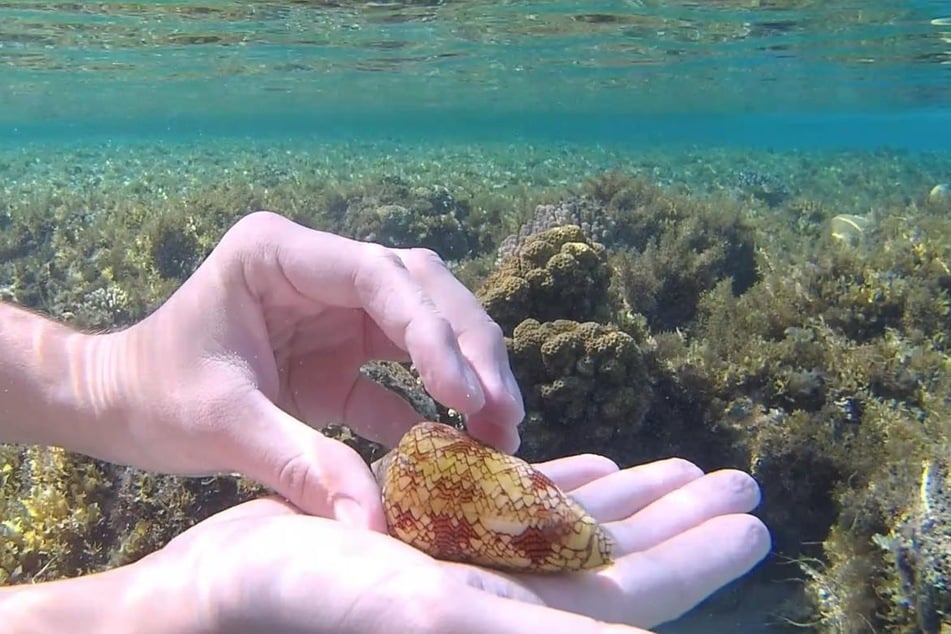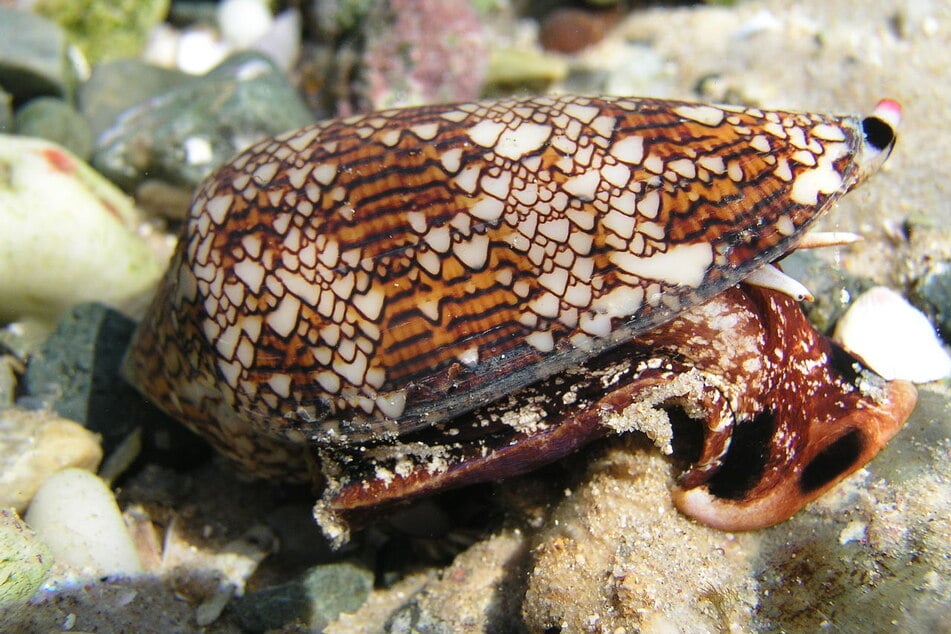A man picks up a colorful shell: When he learns the truth, he has to take a deep breath
Egypt - He didn't know it. While snorkeling in the Red Sea, Frank discovered a colorful shell and picked it up without further ado. But when he found out what it really was, he must have shuddered.

On Reddit, Frank shared a picture of the supposed shell he was holding in his hand while diving.
"I thought I had just found a very nice shell and wanted to take it home as a souvenir," the diver explained. However, when he felt a "movement" and a "weight" inside, he preferred to put the shellfish back. Nevertheless, Frank decided to take a few photos with his GoPro camera, unaware that his life was in acute danger.
It wasn't a mussel, but a cone snail - a highly poisonous predatory snail that is widespread in tropical waters. More than 750 species are known worldwide.
Some cone snails are so deadly that a single bite with the venomous tooth, the so-called radula, is enough to send an adult human to the afterlife.
Poisonous cone snails: underestimated danger?

It wasn't until Frank was back home that he learned the truth. "Months later, I was told that it might not have been a good idea to handle it like that," he wrote on Reddit, asking the community: "Can you help me identify exactly what it was and what danger I was really in?"
Reddit user JorikThePooh knew the answer: "It's a weaver cone, Conus textile," the biologist wrote, explaining: "All cone snails are venomous , but this species is one of those known to be dangerous to humans."
However, deaths are rare. Just over 30 fatal incidents in connection with cone snail attacks are known. But the number of unreported cases is likely to be far higher, the user is certain.
"Yes, it was a bad idea to just pick it up, especially underwater where it was most likely still alive. It could have killed you," warned the cone snail expert, adding: "There is no antidote. Survival is a matter of luck."